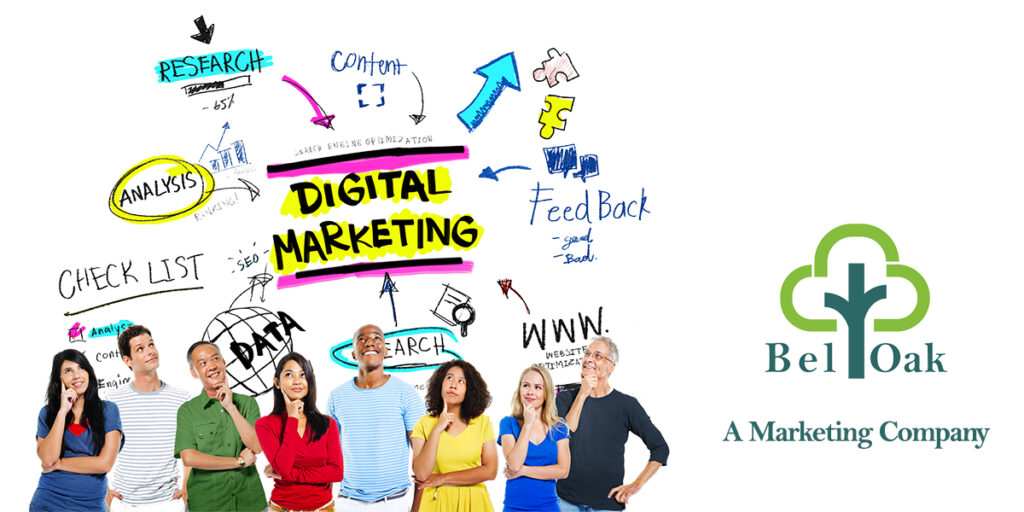The internet has become an indispensable tool for businesses, and having a strong online presence is essential for any corporate brand. We’ll explore some of the best places for a corporate brand to establish its online presence.
1. Company Website
A company website is one of the most important places for a corporate brand to establish its online presence. It serves as a hub for all information related to the brand, including its products and services, mission statement, and contact information. A well-designed and user-friendly website can help build credibility and trust with potential customers, while also providing a platform for sales and marketing efforts.
2. Social Media
Social media platforms like Facebook, Twitter, LinkedIn, and Instagram offer businesses an opportunity to connect with customers on a more personal level. By sharing engaging content, responding to customer inquiries, and showcasing the brand’s values and personality, social media can be a powerful tool for building brand awareness and loyalty.
However, it’s important to choose the right social media platforms based on your target audience and business goals. For example, LinkedIn is ideal for B2B businesses looking to connect with other professionals in their industry, while Instagram may be better suited for consumer brands looking to showcase their products visually.
3. Online Directories
Online directories like Yelp, Google My Business, and Yellow Pages can help improve a corporate brand’s online visibility and attract more customers. These directories allow businesses to list their contact information, hours of operation, and other details, making it easier for customers to find and engage with the brand.
Additionally, online directories often allow customers to leave reviews, which can help build credibility and trust with potential customers. Responding to both positive and negative reviews in a professional and timely manner can further improve a corporate brand’s reputation and online presence.
4. Industry-Specific Platforms
Industry-specific platforms like forums, blogs, and newsletters can be a valuable place for a corporate brand to establish its online presence. These platforms allow businesses to connect with other professionals in their industry, share their expertise, and build thought leadership.
For example, a B2B software company may establish its online presence by contributing to industry-specific blogs or forums, while a consumer brand may partner with lifestyle bloggers or influencers to showcase their products.
5. Search Engines
Search engines like Google and Bing are often the first place that customers go to research a brand or product. Therefore, it’s essential for a corporate brand to have a strong presence on these platforms.
Search engine optimization (SEO) is the process of optimizing a website to improve its visibility and ranking in search engine results pages. By incorporating relevant keywords, creating high-quality content, and building backlinks from reputable sources, a corporate brand can improve its search engine ranking and attract more traffic to its website.
6. E-commerce Platforms
E-commerce platforms like Amazon and Etsy offer businesses an opportunity to sell their products online and reach a wider audience. These platforms often have a large and engaged user base, making them an attractive place for businesses looking to expand their reach.
However, it’s important for a corporate brand to maintain its own website and online presence in addition to selling on e-commerce platforms. This ensures that the brand maintains control over its messaging and user experience, while also providing a platform for marketing and sales efforts.
7. Email Marketing
E-commerce platforms like Amazon and Etsy offer businesses an opportunity to sell their products online and reach a wider audience. These platforms often have a large and engaged user base, making them an attractive place for businesses looking to expand their reach.
However, it’s important for a corporate brand to maintain its own website and online presence in addition to selling on e-commerce platforms. This ensures that the brand maintains control over its messaging and user experience, while also providing a platform for marketing and sales efforts.
8. Online Advertising
Online advertising offers businesses an opportunity to reach a large and targeted audience through platforms like Google Ads, Facebook Ads, and LinkedIn Ads. By creating targeted ads that speak to specific customer segments, a corporate brand can improve its visibility and attract more traffic to its website.
However, it’s important to approach online advertising strategically and monitor the results closely. Ad campaigns should be optimized based on their performance, and businesses should be prepared to adjust their strategy if the results are not meeting their goals.
9. Mobile Apps
Mobile apps offer a unique opportunity for corporate brands to engage with customers on the go. By creating a mobile app that offers value to customers, such as a loyalty program or a product recommendation engine, businesses can build deeper relationships with their audience and increase customer engagement.
However, creating a mobile app can be a significant investment, and businesses should ensure that it aligns with their overall strategy and goals before committing to the project.
10. Online Reviews and Testimonials
Online reviews and testimonials are an essential part of a corporate brand’s online presence. Positive reviews and testimonials can help build credibility and trust with potential customers, while negative reviews can damage a brand’s reputation and deter customers from making a purchase.
Businesses should actively monitor their online reviews and respond to both positive and negative feedback in a professional and timely manner. By addressing customer concerns and showing that the brand values its customers, businesses can improve their reputation and build stronger relationships with their audience.
11. Video Marketing
Video marketing is a powerful way to engage with customers and showcase a corporate brand’s products or services. By creating high-quality videos that tell a story or demonstrate the value of the brand, businesses can improve their online visibility and attract more traffic to their website.
Video content can be shared on social media, company websites, and other online platforms, making it a versatile and effective marketing strategy. However, it’s important to ensure that videos are optimized for mobile devices and are accessible to all users, including those with disabilities.
12. Influencer Marketing
Influencer marketing involves partnering with individuals who have a significant following on social media or other online platforms. By working with influencers who align with a corporate brand’s values and target audience, businesses can reach a wider audience and build brand awareness.
However, it’s important to choose influencers carefully and ensure that they are authentic and trustworthy. Influencer marketing campaigns should be transparent and follow best practices to avoid coming across as inauthentic or manipulative.
13. Podcasts
Podcasts are a growing medium for businesses to reach their audience and share their expertise on a particular topic. By creating a podcast that offers value to customers, businesses can build deeper relationships with their audience and increase customer engagement.
Podcasts can be shared on various online platforms, including company websites, social media, and podcast directories such as Apple Podcasts and Spotify. However, it’s important to create high-quality content that is both informative and entertaining to keep listeners engaged.
14. Webinars
Webinars are an effective way to educate customers and share knowledge about a particular topic related to a corporate brand’s products or services. By hosting webinars, businesses can establish themselves as thought leaders in their industry and build stronger relationships with their audience.
Webinars can be promoted on various online platforms, including company websites, social media, and industry-specific platforms. However, it’s important to ensure that the content is relevant and valuable to the target audience and that the presentation is engaging and interactive.
15. Online Communities
Online communities such as forums, Facebook groups, and Slack channels can be a valuable place for a corporate brand to engage with customers and establish a sense of community around the brand. By creating or joining relevant online communities, businesses can connect with customers, gather feedback, and build stronger relationships.
Online communities can also provide opportunities for businesses to showcase their expertise and provide value to customers by answering questions and sharing knowledge. However, it’s important to approach online communities in a respectful and authentic manner and avoid coming across as spammy or sales-focused.
16. Interactive Content
Interactive content such as quizzes, surveys, and polls can be a fun and engaging way for a corporate brand to connect with its audience and gather feedback. By creating interactive content that aligns with the brand’s values and mission, businesses can build stronger relationships with their audience and encourage them to share their opinions.
Interactive content can be shared on various online platforms, including social media, company websites, and industry-specific platforms. However, it’s important to ensure that the content is relevant and valuable to the target audience and that the presentation is engaging and interactive.
17. Virtual Events
Virtual events such as webinars, conferences, and product launches can be a powerful way for businesses to connect with their audience and showcase their products or services. By hosting virtual events, businesses can reach a wider audience and build stronger relationships with their customers.
Virtual events can be promoted on various online platforms, including social media, company websites, and industry-specific platforms. However, it’s important to ensure that the event is relevant and valuable to the target audience and that the presentation is engaging and interactive.
18. Online Courses
Online courses can be a valuable way for a corporate brand to share its expertise and provide value to its audience. By creating high-quality courses that align with the brand’s values and mission, businesses can establish themselves as thought leaders in their industry and build stronger relationships with their customers.
Online courses can be shared on various online platforms, including social media, company websites, and industry-specific platforms. However, it’s important to ensure that the content is relevant and valuable to the target audience and that the presentation is engaging and interactive.
19. Chatbots
Chatbots are a growing technology that can help businesses provide better customer service and support online. By creating chatbots that can answer common customer inquiries and provide relevant information, businesses can improve their customer experience and build stronger relationships with their audience.
Chatbots can be integrated into various online platforms, including social media, company websites, and messaging apps. However, it’s important to ensure that the chatbot is user-friendly and provides accurate and relevant information to the customer.
20. Online Marketplaces
Online marketplaces such as Amazon and eBay can be a valuable place for businesses to sell their products and reach a wider audience. By listing their products on online marketplaces, businesses can take advantage of the platform’s user base and built-in traffic to increase their sales.
However, it’s important to maintain a strong online presence outside of online marketplaces and to have a clear strategy for managing sales and customer interactions on these platforms.
21. Online Reviews Monitoring
Monitoring online reviews and feedback is a crucial part of a corporate brand’s online presence. By regularly monitoring and responding to customer feedback, businesses can improve their reputation and build stronger relationships with their audience.
Online reviews can be monitored on various platforms, including social media, online directories, and e-commerce platforms. However, it’s important to ensure that the response is professional, timely, and addresses the customer’s concerns in a respectful manner.
22. Brand Partnerships
Brand partnerships can be a valuable way for a corporate brand to reach a wider audience and build stronger relationships with customers. By partnering with another brand that shares similar values and target audience, businesses can increase their brand awareness and credibility.
Brand partnerships can take many forms, including co-branded products, joint marketing campaigns, and events. However, it’s important to ensure that the partnership is authentic and aligns with the brand’s values and mission.
23. Online Reputation Management
Online reputation management involves monitoring and managing a corporate brand’s online presence to ensure that it reflects the brand’s values and mission. By actively managing their online reputation, businesses can improve their credibility and build stronger relationships with customers.
Online reputation management can involve monitoring online reviews and feedback, responding to customer inquiries and concerns, and addressing negative content or reviews in a professional and timely manner. It can also involve creating positive content and showcasing the brand’s values and mission through various online platforms.
24. User-Generated Content
User-generated content such as customer reviews, social media posts, and blog comments can be a powerful way for a corporate brand to build credibility and trust with potential customers. By showcasing user-generated content that reflects positively on the brand, businesses can improve their online reputation and build stronger relationships with customers.
User-generated content can be shared on various online platforms, including social media, company websites, and online directories. However, it’s important to ensure that the content is relevant and valuable to the target audience and that it aligns with the brand’s values and mission.
25. SEO (Search Engine Optimization)
SEO is the process of optimizing a corporate brand’s online presence to improve its visibility on search engine results pages. By using targeted keywords, creating high-quality content, and optimizing website structure and design, businesses can improve their search engine rankings and attract more traffic to their website.
SEO can be a complex and ongoing process, requiring regular updates and maintenance to remain effective. However, by investing in SEO strategies that align with their overall goals and mission, businesses can improve their online visibility and build stronger relationships with their audience.
26. Localization
Localization involves adapting a corporate brand’s online presence to meet the specific needs and preferences of customers in different regions or countries. By creating localized content, offering local payment and shipping options, and addressing local cultural norms and practices, businesses can improve their appeal to a wider audience.
Localization can be a complex process, requiring extensive research and adaptation to local markets. However, by investing in localization strategies that align with their target audience’s needs and preferences, businesses can improve their online visibility and build stronger relationships with customers in different regions or countries.
27. Website Analytics
Website analytics involves tracking and analyzing a corporate brand’s website traffic and user behavior to inform marketing strategies and improve the user experience. By using tools such as Google Analytics, businesses can gather valuable insights into their audience’s behavior and preferences, including which pages they visit, how long they stay on the website, and which actions they take.
Website analytics can inform various marketing strategies, including SEO, online advertising, and user experience design. By regularly monitoring and analyzing website analytics, businesses can make data-driven decisions and improve their online presence.

Conclusion
In conclusion, a corporate brand’s online presence is multifaceted and requires a strategic approach to be effective. By establishing a presence on company websites, social media, online directories, industry-specific platforms, search engines, e-commerce platforms, email marketing, online advertising, mobile apps, online reviews and testimonials, video marketing, influencer marketing, podcasts, webinars, online communities, interactive content, virtual events, online courses, chatbots, online marketplaces, online reviews monitoring, brand partnerships, online reputation management, user-generated content, SEO, localization, and website analytics, businesses can reach a wider audience and build stronger relationships with customers. However, it’s important to approach each platform strategically and monitor the results closely to ensure that the brand is meeting its goals and achieving a positive return on investment.





